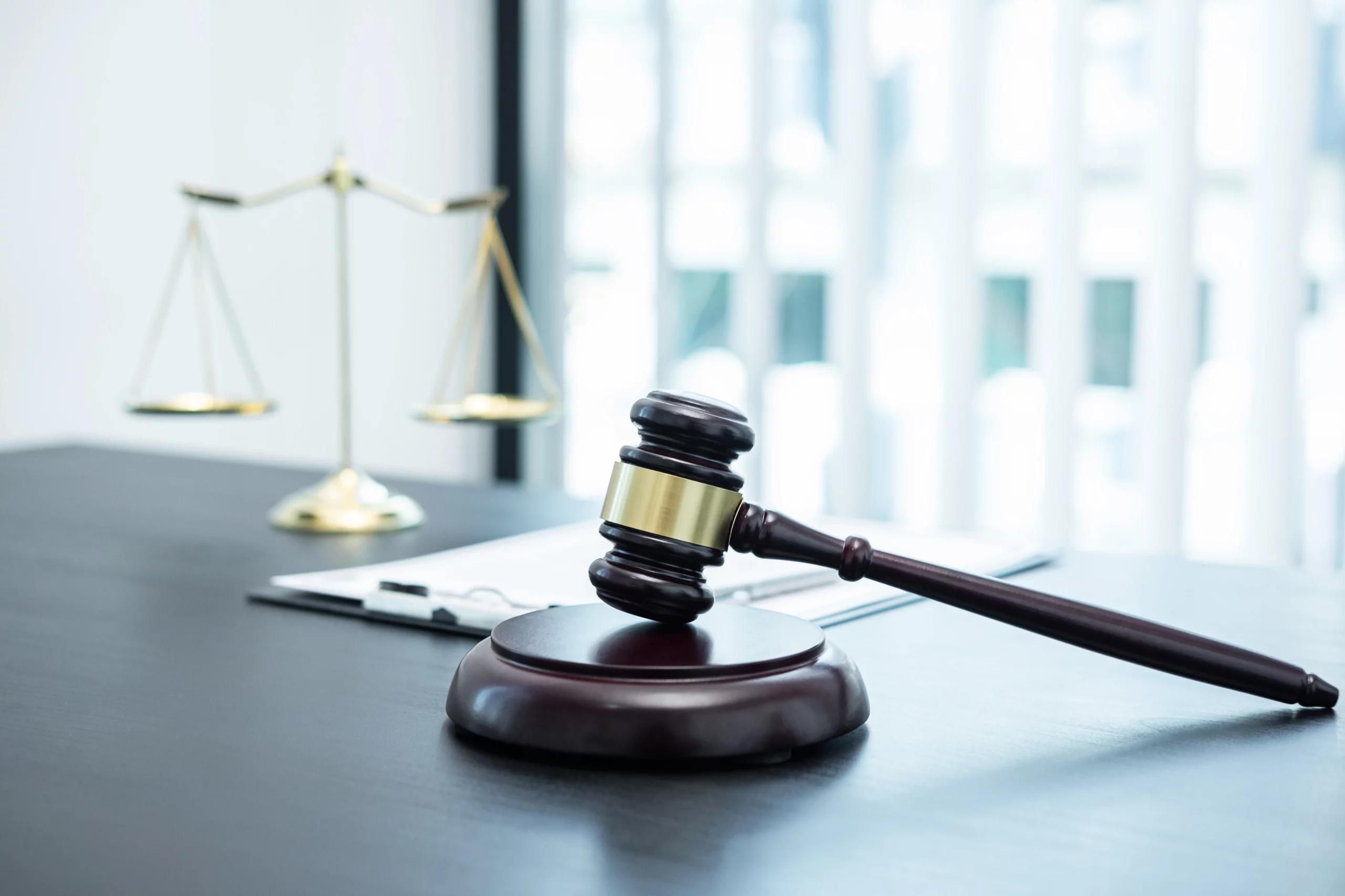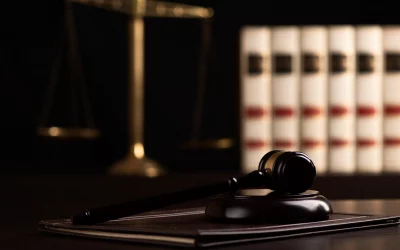Personal Injury Attorney in Colorado Springs
You may require the services of a hire a personal injury lawyer if you’ve been gravely hurt in an accident. However, what exactly does a personal injury lawyer accomplish?
Most people know that if you are injured in a car accident, a personal injury lawyer may assist you in getting compensation.
On the other hand, personal injury attorneys are well-versed in dealing with a broader range of issues than just car accidents.
Warrior Injury Law, personal injury law specializing in a wide range of areas of personal injury law. Call us for a free consultation.if someone or a business hurt you.
You Can Be Safer If You Hire a Personal Injury Attorney
Your rehabilitation is the most important thing you can focus on after being injured in a fall, a car accident, a faulty product or anything else.
While receiving emergency medical care, your attorney is safeguarding your legal rights. He creates a barrier between you and anybody who could disturb your peace of mind.
- As your medical bills, hospital management will want to know how you intend to pay them.
- In the event of a car accident, the police officer investigating will be looking for solutions.
- A statement from you to your insurance carrier is required. They’ll look into these things when determining your PIP benefits and whether or not the other driver’s damages are owed.
- The other driver’s insurance company will need to hear your version to determine whether they can walk away from the situation without paying you a dime.
- It’s important to tell the liability insurance provider what occurred if you fell on someone else’s property.
- The HR department and your manager will also want to know whether you were hurt on the job.
Even though you may be able to tackle these and other challenges on your own, there is too much at risk for you to take on this challenge alone. Your injury lawyer intervenes on your behalf during the confused post-accident days. Rather than harassing you, he has others deal with him as your legal agent. The minute you decide to work with a personal injury lawyer, he or she is on high alert until you sign any final compensation forms.
Personal Injury Lawyers Do Difficult Work.
A personal injury attorney safeguards your legal rights. However, he must foresee and anticipate legal concerns before they develop and take action on your behalf. This frequently needs a steady stream of work.
Educating you on your legal options in light of the accident
Your injuries and losses may be compensated if someone else is to blame for your harm. Lawyers specializing in personal injury cases may help you choose the best course of action for settling.
A personal injury lawyer should be prepared to take your case to court if the insurance company refuses to negotiate a fair and to negotiate a settlement
Lawyers follow a road plan to protect their client’s rights. When you and your lawyer talk about your case, he or she listens for details that need to be clarified or followed up on. He deeply probes the specifics of your mishap, including the nature of your injuries, the extent of your suffering, healing, potential limitations, and insurance coverage.
You should tell your council about any lights, traffic signals, speed restrictions, or traffic signs that controlled your access to the roadway if you were wounded in an accident there.
Your lawyer will ask about the condition of the ground where you slipped and fell in case you have a slip and fall case. He’ll consider things like the colour of your clothes, the soles of your shoes, and any other hindrances in your way. Your fall is something he’d be interested in finding out more about.
Investigating a Case and Finding the Truth
Investigating the matter and conducting discovery are two important steps in preparing for settlement and trial. A personal injury lawyer will investigate your case, which may include retaining hiring expert witnesses and compiling all relevant information in the wake of your mishap.
Some attorneys carry out their investigations, while others prefer to rely on private detectives.
- Finding and interviewing witnesses
- gathering evidence (such as pictures, videotapes
- and schematics of the accident scene)
- gathering police and employer reports
- photographing the cars involved
- and documenting hazardous circumstances on the scene are all part of an investigation. Even if there aren’t any
the lawyer may send someone to the scene of the accident to take photographs of any evidence left behind, such as skid tracks, car pieces, or anything else that couldn’t be cleaned up.
Performing these and other chores will help the attorney gather evidence to use in his investigation of the matter. To assist you collect the compensation you deserve, your attorney will also require copies of your medical bills. and expenses.
To prove that your injuries aren’t normal for you and/or that the injuries you got in the accident aggravated your condition, your attorney may require information about your underlying ailments, such as diabetes or an immune system disorder.
Attorneys often prepare interrogatories (written inquiries) for the opposing side. The attorney may also request depositions to interrogate the other party under oath.
After a vehicle collision, you’ll be contacted by your insurance provider and the other driver’s insurance provider. A general liability or workers compensation carrier will want to know whether it’s a premises fall or an on-the-job accident. They’ll all want to hear from you in writing.
Will:
- Refuse to limit the flow of information that might harm your claim;
- Represent you in court.
- Plan and oversee your statement, or advise you in advance about what to say or avoid saying
Encourage your insurance provider to pay the costs of your medical care and vehicle repairs by having further talks with them.
Notifying the Parties
Your injury attorney informs all relevant parties that he represents you to keep them from contacting you. He informs each individual or organization that all future communications or enquiries must go via his office.
Keeping track of insurance contacts and claim statuses, injury prognosis, medical treatment and expenses, and other important information is now possible thanks to this service for personal injury attorneys.
Letters of Representation sent
In most cases, an attorney will provide a formal letter of representation if he or she first communicates with you via the phone or email. In the event of an accident, he will write a letter on behalf of his client to all parties involved, including the other drivers of the other vehicles, the wounded employees’ employers, the makers of the faulty devices, the insurance companies, and anybody else.
Approved Insurance Policy Requests and Reviews
Your insurance providers will likely provide your lawyer with a copy of your vehicle policy or any applicable policies. He will be able to put your mind at ease concerning your vehicle insurance perks and coverage once he gets them.
PIP, liability, medical, and Uninsured Motorist (U/M) coverage will be reviewed, as well as benefits information from your health insurance company.
Understanding Your Subrogation Rights Against Your Insurance Providers and Keeping Records
Your lawyer will also examine subrogation clauses in your health and car insurance policies. Defend their subrogation rights and include them in future litigation as a party to this document. In his or her capacity as your advocate, your lawyer should be familiar with the insurance company’s legal entitlement to recoup the damages it has paid out.
When you file a claim or lawsuit for damages, he will also safeguard the interests of your insurance company.
Acquiring an Unsatisfactory Product
If a defective product causes you harm, you will need the product as proof in your case. If it is in your possession, your attorney will explain why you should not hand it up to anybody except his legal office or its agent. Your lawyer will likely have an investigator pick up the merchandise and bring it to the office for storage or testing as soon as possible.
Non-Destructive Testing may be arranged.
For non-destructive testing, an industry expert must be hired by the attorney who owns the product. It’s critical to seize the merchandise before the manufacturer or their insurance carrier if an injured client claims a faulty product caused their injury.
When defendants undertake destructive testing, plaintiffs cannot conduct relevant tests to confirm a defect since the product has been destroyed.
Experts from the personal injury attorney’s firm will establish whether the product was defective and whether or not it was a contributing factor in the client’s injuries.
Non-destructive testing preserves a product’s structural integrity. According to these agreements, defendants and their insurance companies may test the product while it is still in its original packaging.
Inquiry on Product Errors
Whether a faulty product injured you, your lawyer will thoroughly investigate consumer websites prior lawsuits, and government websites to discover if there have been any comparable cases.
Inquiring about the results of product testing
After an expert has tested the product, your lawyer may seek a full report describing the results.
Examining Possibilities for Legal Problems
Having acquired enough evidence and facts, your attorney conducts a thorough liability analysis. There are several legal precedents and legislation that he studies. He uses the data to support his case for bringing legal action against the parties at fault.
It takes less time to resolve when the issue is a simple car accident. It will be necessary to conduct a thorough investigation if your accident includes complicated concerns, uncommon situations, or novel legal theories.
Keeping Track of Medical Bills and Records
Towards the end of your treatment, your doctor will check all your accrued medical bills and ask for those that haven’t been paid yet.
Requesting a copy of one’s medical files
Your attorney will want narrative medical reports from your doctors if you’ve attained full recovery. The reports will include your injuries, treatment, diagnosis, prognosis, information on your impairment, and medical history. Ultimately, it will determine whether you can return to your pre-injury employment and activity levels.
Requesting Information on Unclaimed Income
Your lawyer will require proof from your employer that you have been unable to work due to your injuries to assess your damages. A medical certificate must back up the loss of income.
Identifying Medical Professionals
A person’s life may be forever altered if they suffer a catastrophic or significant injury that necessitates several diagnoses, treatments, prognoses, and limitations. Your lawyer may employ a medical expert to validate the diagnosis and forecast future limitations and treatments.
Economic forecasts are being requested.
A medical economist may be hired by your lawyer if there is a possibility of significant future medical care and earnings losses.
Requesting the Opinion of a Medical Professional
Your lawyer may consult with medical specialists about your case over the phone or in person. If the results corroborate your injuries, limits, and disability claims, he will ask for a narrative report.
PIP Tort Exemptions have been confirmed
If your medical condition falls inside one of the Colorado PIP exclusions, you are not entitled to file a claim against a careless driver for damages. An attorney will file an insurance claim against the at-fault driver’s insurance company after they verify that you’ve satisfied one of these criteria, such as
- Significant and permanent loss of a vital physical function
- permanent harm
- Death
At this point, your lawyer will generally try to settle the claim with the proper liability carrier if you’ve achieved maximum healing or your attorney has a solid image of the occurrence and what they feel you’ll need to pay your past and future medical bills.
Traditionally, personal injury lawyers would present a settlement demand, a stack of medical bills, reports, proof of lost wages, and a culpability analysis. An offer by the defendants might start informal discussions, which could lead to a settlement.
Attorneys who feel that additional talks with the insurance company will not result in a fair settlement are prepared to go to trial if the insurance company fails to reply or makes a low-ball counteroffer.
Lawsuit Initiation
A new stage in your lawyer’s representation starts with filing a lawsuit. Formalizing his legal ideas, assertions, and harm data is a major accomplishment for him. They give up some power to a judge, typically in favor of settlement.
When a matter goes to trial, all parties and insurance companies start paying legal costs and expenditures. Defendants are sometimes motivated to settle because of the rising expenses.
Participating in ADR
According to national data, attorneys settle 95% of the suits they file they bring. For this reason, courts advocate for early resolution via mediation, settlement conferences, and other means. All personal injury cases in Colorado must be settled via mediation.
In a casual atmosphere, you, your attorney, the insurance company’s representative, the insurance company, and the lawyer of the insurance company meet. The opposing parties exchange information to reach an agreement.
Trial Preparation
Settlement discussions are almost always preceded by discovery and investigation, so by the time an attorney is ready to negotiate a settlement, your case is almost certainly headed to trial. At this point, they must file suit and gather all necessary proof before appearing in court. The defendant (the person you are suing) must be given copies of any evidence the attorney intends to use in court.
The defendant must also provide your counsel with any evidence they intend to use at trial. Your lawyer may employ expert witnesses on your side to testify about particular parts of your case at trial, such as how much you can expect to pay in future medical expenses.
If the insurance company has not given a fair and reasonable settlement by the time the case is ready for trial, the lawyer will ask the court to establish a trial date. The trial length might range from a few hours to many days, depending on the nature of the case.
Suppose you have to get your case tried?
During a trial, your lawyer will present evidence to a judge and jury on your behalf. Only a judge can hear your evidence and decide in a bench trial, which you might seek.
Involved in Workers’ Compensation Cases for Clients
A worker’s compensation lawyer can assist you in completing and submitting any necessary reports and forms. If your insurance company denies your claim, your lawyer will help you file a claim for compensation with the appropriate authorities. In addition, he will defend you in any necessary hearings and assist you in obtaining any lump-sum payments to which you are entitled.
Law Firms For Personal Injuries A Fast and Furious Pace Must Be Maintained
In the course of your case, there may be times when your lawyer’s workload is very light. You may expect him to be busy during active times, putting together the evidence he needs for your case. Your lawyer’s actions are based on the specifics of your case, such as the sort of claim you have and the damage you’ve suffered.
Find a lawyer who will take the time to explain how he or she plans to help you win your case.
Call 719-300-1100 to get a free legal consultation.
Damages from Personal Injuries
Damages may be available to you, which are monetary compensations for your losses and/or injuries. Special and punitive damages may be awarded in personal injury cases.
Extraordinary Losses
Damages having a fixed financial value are included here. In addition to medical costs, economic losses may include:
- Lost earnings
- Future lost wages suffered as a consequence of the accident
- Medical expenditures incurred as a result of the event
- repairing or replacing your personal belongings
- Damages to Property as a Whole
Damages more difficult to put a monetary value on are known as intangible damages. If you or a loved one was killed or had long-term injuries due to an accident, a court or insurance company may grant you this form of compensation.
Compensation for pain and suffering, loss of a bodily part or limb, loss of pleasure of life, separation from a partner, and loss of consortium are all examples of general damages. Wrongfully killed
Injuries that are punishable
punitive damages may only be awarded if the respondent acted recklessly or deliberately injured the plaintiff. Defendants are punished with this form of harm. While punitive damages aren’t mandatory, they can be awarded to you if you or a loved one were injured or died due to a negligent driver’s actions.
An intentional tort like trespassing with the intent to harm you or your family may also be subject to punitive damages awards by courts. Punitive damages may be awarded in a civil case if the defendant trespassed on your property and started a fire while you were home.
If the case goes to trial, the defendant will almost certainly be charged with trespassing and arson.
Making Arrangements for Compensation
The lawyer will collect the award from the defendant after the insurance company or court order has been settled, or a settlement has been reached. Attorneys typically take a percentage of your winnings as their agreed-upon fee. In addition, your lawyer will see that all of your medical costs are covered and that you get a check for the remainder of the settlement or court order money.
Is a Personal Injury Attorney Expensive?
Many people are reluctant to hire a personal injury lawyer because of the challenging circumstances they are currently in. Naturally, people still recovering from serious injuries are wary of engaging a lawyer since the potential of further costs is unappealing.
As a result, personal injury attorneys operate on a contingent fees basis rather than needing a large upfront commitment.
As compensation for your legal services, your lawyer takes a percentage of the settlement or court award he or she secures for you. Contingent fees are often a portion of the money you get that is immediately deducted from your lawyer’s fee.
As a result, your lawyer is incentivized to maximize your compensation since their fee is directly linked to it.
If your attorney fails to get compensation for you, they will not receive a penny.
Call a Personal Injury Attorney for More Information if You Have Been Injured by Someone Else.
If you’ve been injured in a catastrophic accident, you need a personal injury legal company that’s eager to fight for your rights.
Ideally, you’ll want to choose a lawyer that can handle your case on a contingency fee basis, is available for free consultations, and has the skills and knowledge to help you.
Please call us at 719-300-1100 or contact us online to arrange a free consultation and case review with an experienced personal injury attorney.











